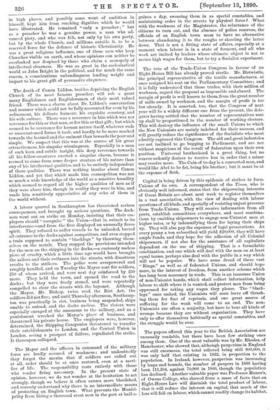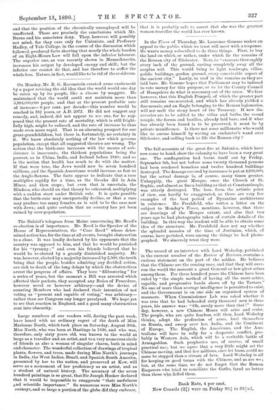The papers offered this year to the British Associatiori are
unusually readable, but there have been few striking ones among them. One of the most valuable was by Mr. Rhodes, of Manchester, who showed that, although pauperism in England was still enormous, the total relieved being still 800,000, it was only half that existing in 1832, in proportion to the population. In Ireland, however, pauperism was increasing by leaps and bounds, the number of paupers in 1888 having been 111,204, against 70,966 in 1866, though the population has declined. • Another valuable paper was Professor Munro's, of Owens College, who showed from a mass of facts that an Eight-Hours Law will diminish the total product of labour, that it will reduce the interest on capital, that much of the loss will fall on labour, which cannot readily change its habitat, and that the position of the chronically unemployed will be unaffected. These are precisely the conclusions which Mr. Burns and his associates deny. They, however, will possibly not mind, for they care only for Unionists, and Professor Hadley, of Yale College, in the course of the discussion which followed, produced facts showing that nearly the whole burden of an Eight-Hours Law will fall upon the inferior labourer. The superior one, as was recently shown in Massachusetts, increases his output by developed energy and skill ; but the inferior one cannot do that, and has therefore to suffer the whole loss. Nature, in fact, world like to be rid of the residuum.







































 Previous page
Previous page